- Home
- Upton Sinclair
World's End (The Lanny Budd Novels) Page 8
World's End (The Lanny Budd Novels) Read online
Page 8
They returned with a large bag of game, and a still larger appetite. They had a meal to match it, with half a dozen courses of meats and fowl. When they rose from the table they all took hands and danced gaily around it, crying “Mahlzeit!” Afterward they gathered round the piano and sang sentimental songs in melting voices, also Kurt and his guest were asked to show what they had learned at Hellerau. Lanny was echt deutsch that night, and stowed in his memory two lines of poetry which his friend quoted, to the effect that when you hear singing you may lie down in peace, because evil people have no songs.
VII
“Fröhliche Weihnachten,” said everybody next morning, for it was the day before Christmas. The young people took a long sleigh ride and saw the country, and in the afternoon they played music, and Lanny danced with Kurt’s sister. In the evening the Christmas celebration took place, and there were presents for all the family and the servants; not under the Christmas tree, but on separate little tables, covered with linen cloths. After the tree was lighted, the presents were given out. The Herr Comptroller said a few words, and shook hands with each of his servants, and they all kissed the hand of his wife. Everything was warmhearted, everybody wished happiness to everybody else, and they sang “Stille Nacht” with tears in their eyes.
Next morning they had a preliminary breakfast, eating a long kind of bun called Dresdner Christstollen, with raisins in it and sugar on top; also eggs, and many kinds of homemade jam, and coffee with hot milk. That was supposed to carry you until half-past ten, when you had the so-called “fork-breakfast.” It appeared that ideas of diet reform which were spreading among Lanny’s American friends had never been heard of in this Prussian province, and such things as Hasenpfeffer, fresh pork sausage, and several other kinds of meat could be eaten in great quantities in the morning.
Later on there was to be a celebration at the Schloss, and everybody dressed, the men in uniforms and decorations, and the ladies with their jewels, silks, and laces. They came in a happy solemn mood as to a church festival. For the tenants and employees it was the one time in the year when they might pass the portals of the great building which dominated their lives. They waited respectfully outside until the last of the dignitaries had entered and taken their places; then the crowd streamed into the great hall, the men taking off their hats before they ascended the steps, the peasant women with kerchiefs or shawls over their heads, curtsying to everybody. Those for whom there were no seats packed themselves around the walls.
Seine Hochgeboren and family came in by a private entrance, and everybody stood and said “Fröhliche Weihnachten.” The pastor said a prayer, quite a long one, and they all stood again and sang a hymn, in such volume as to drown out the organ. The Graf gave them all Christmas greetings in a fatherly talk, full of assurances of concern for their welfare, and declaring the divine origin of “deutsche Treu und Werde.” In their happy land, so favored by God, peace and order prevailed, and every man and woman cherished the sacred flame of loyalty in his heart. In this happy Christmas season they renewed their pledges to the Kaiser and Fatherland. The applause which followed seemed to indicate that Seine Hochgeboren was completely justified in his faith.
A great fir tree out of the forest stood in a corner of the hall, and there were presents for everyone, even to the toilworn peasant woman and the half dozen little ones who had stared at Lanny out of the window of the hut. Four men in uniform called the names on the packages and handed them out; but even with this procedure it took long to distribute them all. Not a person left the hall, and Seine Hochgeboren shook hands with each man and woman. Lanny was not bored, because these were Kurt’s people, and he was interested to watch their faces and their costumes.
Next day the Comptroller-General went to report to his employer upon the state of affairs. He was invited to a smoker that evening, together with his eldest son. Other neighboring land owners came, and several of the higher officials of the estate, the chief of police, the head forester, and so on. Over pipes and beer they discussed the state of the country, both local and national, and the Graf honored them by reporting upon matters of importance on which he had special sources of information. The following evening Herr Meissner told his family what had gone on at this smoker, and gave his own views of the matters discussed. Everybody in the household listened respectfully to what the stout and imposing father said, and no one ventured to question anything. The guest from a foreign land could not understand all the long words, but listened attentively, and afterward had matters explained to him by Kurt.
Seine Hochgeboren had reported that other nations, jealous of German diligence and skill, had surrounded the Fatherland with a wall—die Einkreisung, was the phrase. Either that wall would be taken down by agreement, or it would have to be broken, because the Germans were a growing people, and would not be denied their place in the sun. The Graf had spoken of a dark cloud of barbarism in the eastern sky, and by that, of course, he meant Russia. The nobility and land owners of Upper Silesia got along well with their neighbors, the nobility and land owners of the Tsar’s realm, and had no quarrel with them; but they were exasperated by the alliance with France, which was putting up huge sums of money for the arming of Russia. For what purpose? the Graf wished to know. There could be but one answer—a contemplated attack upon Germany.
Also, Seine Hochgeboren had talked about enemies within the Fatherland; he described them as rats, gnawing and nibbling. Of course he meant the Social-Democrats, said Herr Meissner. They had no strength in Stubendorf, where the good old ways prevailed; but in all the industrial districts they never ceased their hateful agitation, and at the next elections to the Reichstag they might win an actual majority. If that happened, steps would undoubtedly have to be taken to put them down by force.
Lanny was moved to tell his friend Kurt about his visit to the “cabbage patch” of Cannes. He didn’t mention that he had an uncle who was a “red sheep”—that was too terrible a family secret; he said merely that somebody had taken him to meet a woman “Red,” and he had been deceived into thinking that she was a good person. Kurt replied: “No doubt many of these agitators are sincere fanatics. Indeed, it’s rather the fashion nowadays to say smart and cynical things against the government.” He added: “There’s more Socialist sentiment in Silesia than perhaps Seine Hochgeboren realizes; there are many coal mines in the province, and in the open portions are large industries and a lot of discontent among the workers.”
Kurt talked in his usual lofty way about social problems. He said that art and culture would filter down from the cultivated classes and ultimately would civilize and regenerate the common people. He was especially certain that the artist must hold himself above the squabbles of politics. Solemnly he declared: “Just as knowledge is power, so is beauty; those who create it are masters of the Idea, which precedes everything in human affairs. As the idea of the chair comes before the making of the chair, so the idea of beauty, goodness, justice, has to be nourished in creative minds. In the beginning was the Word”—and so on for a great many words.
Lanny did not know that all this was German philosophy with a capital P; that a learned professor in Königsberg had sat in his study with his eyes fixed upon a church steeple for twenty years, spinning mental cobwebs made of such high-sounding polysyllables. Lanny did not know that twenty-three centuries previously a wealthy gentleman of Athens of the name of Plato had walked up and down under a portico doing the same thing, and that his doctrines had spread to Alexandria, and from there had reached a Jewish enthusiast by the name of John. What Lanny thought was that his friend, Kurt Meissner, had worked up all this for himself, and he was quite overcome with awe.
VIII
The ten days passed rapidly, and one morning the two boys packed their belongings, said their farewells, and were driven to the station. They rode together to the junction, renewing their pledges of everlasting loyalty. At the junction their roads parted, and Kurt, whose train came first, made sure that his guest had his ticket i
n a safe place, and that the station master would see him aboard his train. Lanny watched Kurt depart; and then, because a cold wind was blowing, he went into the café of the station and ordered a cup of hot cocoa.
While he was sipping it and thinking over adventures the memory of which would always delight him, a man came into the room, looked around, and then came to Lanny’s table. There were other tables, but the man appeared to be sociable, and Lanny was glad to chat with anyone in this agreeable country. The stranger said: “Guten Morgen,” and Lanny returned the greeting, and at the same time took the man in with a swift appraisal.
The stranger was small, rather dark, and sallow; his hat, tie, and overcoat were lacking in those touches of elegance which meant a “gentleman.” He wore glasses, and his thin face had a worried look; his fingers were stained with tobacco. He ordered a glass of beer, and then remarked: “Ein Fremder, nicht wahr?” When Lanny replied that he was an American, the man began to speak somewhat hesitating English. He had seen Lanny with Kurt Meissner, and said that he knew Kurt; had Lanny been staying at the Schloss?
Lanny explained where he had been staying, and they talked about the visit. Lanny enjoyed nothing more than telling about what a good time he had had, and how kind everybody had been. The man seemed to know all about affairs at the castle. Ja, ja, he knew the Herr Comptroller-General, also his sons; they had gone back to the army. No time to be lost in the army; that very morning a company of light artillery had gone into the mountains for practice, the guns mounted on sleds, the troops on skis. Lanny said he had seen them getting off the train; wonderful how fast they had slid those guns off the flatcars. The stranger said that was part of the drill and was timed to the second. The Fatherland had many enemies and must ever be on the alert.
Lanny was interested to hear this from another German. Apparently it was the first thought in the mind of everyone in the country. He told the stranger about the political discussions which had taken place, and how Graf Stubendorf had warned his officials of the dark cloud hanging over the east and of the rats within which were gnawing and nibbling. “He must mean the Social-Democrats,” said the stranger; and Lanny replied, yes, that was what Herr Meissner had explained to his family.
Lanny’s father had carefully posted him as to the dangers of talking about the munitions industry; but it never occurred to the lad that there could be any reason for not discussing the patriotic sentiments of the defenders of the Fatherland. The stranger wanted to know exactly what Seine Hochgeboren had said, and where and how he had said it; so Lanny told about the smoker, and who had been present at it. Seine Hochgeboren had said that if the “rats” were to carry the Reichstag at the next elections, it might be necessary to put them down by force; the comptroller-general had agreed with this idea.
Lanny mentioned also the hunting, and what he had learned about the Kaiser’s extraordinary prowess as a slaughterer of game. The stranger said that photographs of it had been published in the papers; there was one in a magazine which Lanny could buy on the newsstands. He would observe that the Kaiser kept his left arm behind him; one would always find that in any picture of him, for he had a withered arm and was very sensitive about it. Had they mentioned how he had a special knife and fork, made in one piece, so that he could eat with one hand? Lanny said, no, they hadn’t told him things like that. A flicker of a smile crossed the little man’s sallow face.
The stranger went on to set forth how in the castle they had prepared every day a special newspaper for the Kaiser, printed in gold. Lanny said that didn’t sound as if it would be easy reading. The other agreed; but it would never do for the All-Highest to read a common newspaper, such as any of his subjects could buy for ten pfennigs. Had they told him whether everybody in the room had to rise and click his heels when the Kaiser addressed that person?
There had come what seemed a note of sneering in the man’s voice, and the boy became vaguely uneasy and changed the subject. He told how they had shot hare and pheasants in those wonderful forests; and about the farm with the cottage and the pretty children. Lanny said how much he had been impressed by the cleanness and order he had seen in that cottage, and in fact throughout the domain of the Graf, and by the evidences of loyalty and discipline. “Ach, yes!” replied the man. “You see, Napoleon never got here.”
The youngster didn’t know enough history to understand that remark, so the other explained that wherever the French armies had penetrated, they had distributed the lands among the peasants, and so had broken the feudal system. If Lanny had been in France, he must know how independent and free-spoken the peasants were; none of this bowing and kowtowing to the masters, the everlasting Hoheits and Hochgeborens. Lanny said that he had noted that difference.
“Perhaps I ought to tell you,” continued the stranger, “that I am a journalist. I am indebted to you for some very useful information.”
Lanny felt something fall inside and hit the pit of his stomach. “Oh!” he cried. “Surely you’re not going to quote what I’ve been saying!”
“Don’t worry,” said the other, smiling. “I am a man of tact. I promise not to mention or indicate you in any way.”
“But I was a guest there!” exclaimed Lanny. “I haven’t the right to repeat what they told me. That would be shameful!”
“By your own account many persons heard what Stubendorf said. Any one of them might have told it to me. And as to Meissner—”
“It was in his own house!” cried the boy. “Nothing could be more private.”
“He’ll be saying it to many persons, and he won’t have any idea how it came to my ears.”
Lanny was so bewildered and embarrassed he didn’t know what to answer. Such an ending for his holiday! The other, reading his face, continued apologetically: “You must understand that we journalists have to take our information where we find it. I am one of the editors of the Arbeiterzeitung, a Social-Democratic newspaper, and I have to consider the interests of the oppressed workers whom I serve.”
Again something hit Lanny’s stomach, even more heavily than before. “What interest can the workers …?” he began; but then speech failed him.
Said the editor: “Our people take seriously their rights as citizens; but their opponents, it appears, do not share that view. The Comptroller-General of Schloss Stubendorf announces that if the workers win at the polls, the masters will not submit to the decision, but will resort to force and counter-revolution. Don’t you see how very important that news will be to our readers?”
Lanny could not find words to answer.
“You came here as a guest,” continued the other, “and you found everything lovely. There was nobody to take you behind the scenes and show you how this charming Christmas puppet show is worked. You are too young to form any idea of what it means to live in the Middle Ages; but I will give you facts which you can think about on your journey. You admire the fairy-story cottage in the forest and the pretty children—but nobody mentioned that the first of them might be the child of your host, the Herr Comptroller-General.”
“Oh, surely not!” cried Lanny, outraged.
“He scattered his seed freely when he was younger. And I’ll tell you more for your own welfare. You are a charming boy, and if ever you come for another visit, do not attract the attention of the Graf Stubendorf, or under any circumstances be left alone in the room with him.”
Lanny, staring at his interlocutor, didn’t know just what the man meant, but he knew it was something very bad, and the blood was climbing to his cheeks and forehead.
“I will not offend your young mind with the details. Suffice it to say that some men in the Kaiser’s intimate circle have extremely evil ways of life. A few years ago there was a public scandal which forced one of the Kaiser’s best friends to retire from public life. Stubendorf is an exquisite fellow, highly sentimental, and thinks he is a poet; but I tell you that neither boys nor girls are safe in this feudal principality which has seemed to you like a set of Christmas cards.”
> There came a roaring outside the station, and the uniformed official came to the door. “Der Zug, junger Herr,” said he, with feudal politeness. The Social-Democratic editor rose quickly and went out by another door, while the station master took Lanny’s bags and put him safely into the right car.
Lanny never learned the name of that editor, and never knew what he published. For a while his happiness was poisoned by the fear of a scandal; but nothing happened, so apparently the man had kept his promise. Lanny was ashamed of his lack of discretion and resolved never to tell anyone about the incident. A bitter and hateful fellow, that editor; repeating slanders, or perhaps making them up. Lanny decided that Social-Democrats had minds warped with envy, and must be fully as dangerous as anarchists. But all the same he couldn’t help wondering if the stories were true—and whether perhaps it mightn’t have been better if Napoleon had got to Stubendorf!
5
The Facts of Life
I
Lanny came home with the idea fixed in his head that he ought to go to school; he wanted to settle down to hard study and be disciplined and conscientious like those Germans. The idea somewhat alarmed his mother, and she asked, just what did he want to learn. Lanny presented a list: he wanted to understand what Kurt called philosophy, that is, what life was, and why it was, and how the Idea always preceded the Thing; second, he wanted to understand the long German words that he had heard, such as Erscheinungsphänomenologie and Minderwertigkeitscomplexe; third, he wanted to know how to calculate trajectories and the expansive forces of propellants, so as to understand Robbie when he was talking to the artillery experts; and, finally, he wanted to learn to multiply and divide numbers.

 Prince Hagen
Prince Hagen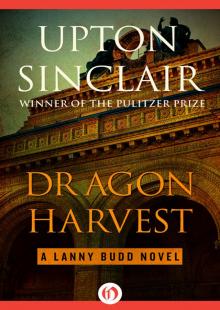 Dragon Harvest
Dragon Harvest The Jungle
The Jungle Sylvia's Marriage
Sylvia's Marriage Oil! A Novel by Upton Sinclair
Oil! A Novel by Upton Sinclair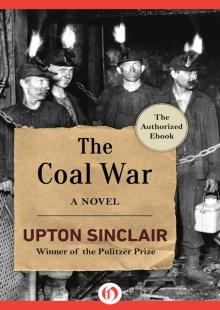 The Coal War: A Novel
The Coal War: A Novel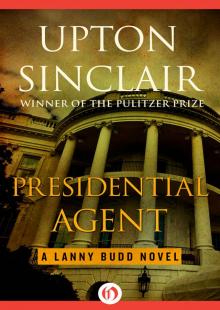 Presidential Agent
Presidential Agent World's End
World's End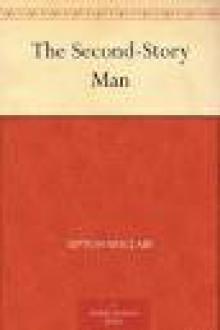 The Second-Story Man
The Second-Story Man O Shepherd, Speak!
O Shepherd, Speak!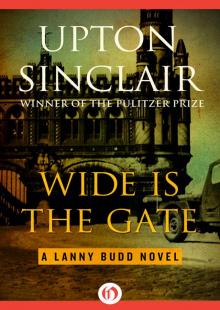 Wide Is the Gate
Wide Is the Gate The Return of Lanny Budd
The Return of Lanny Budd One Clear Call I
One Clear Call I 100%: the Story of a Patriot
100%: the Story of a Patriot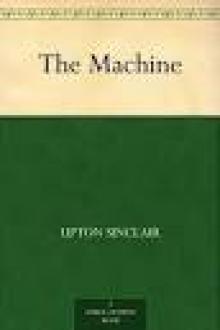 The Machine
The Machine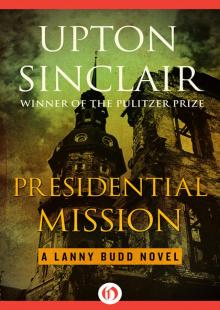 Presidential Mission
Presidential Mission A Cadet's Honor: Mark Mallory's Heroism
A Cadet's Honor: Mark Mallory's Heroism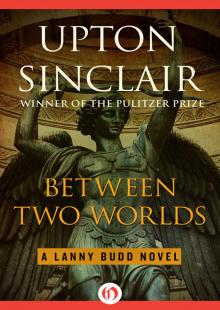 Between Two Worlds
Between Two Worlds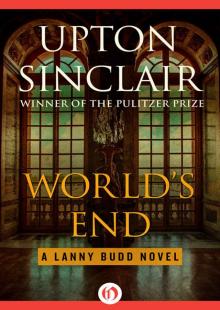 World's End (The Lanny Budd Novels)
World's End (The Lanny Budd Novels)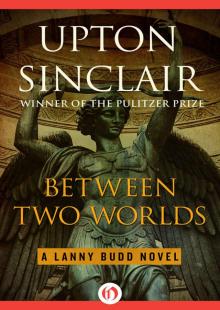 Between Two Worlds (The Lanny Budd Novels)
Between Two Worlds (The Lanny Budd Novels)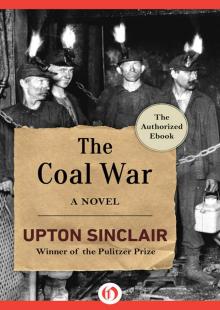 The Coal War
The Coal War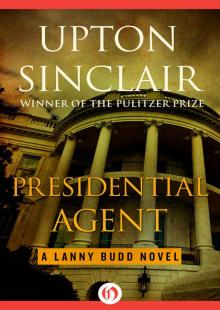 Presidential Agent (The Lanny Budd Novels)
Presidential Agent (The Lanny Budd Novels) Oil (filmed as There Will Be Blood)
Oil (filmed as There Will Be Blood)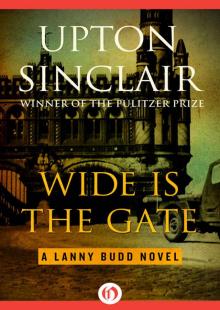 Wide Is the Gate (The Lanny Budd Novels)
Wide Is the Gate (The Lanny Budd Novels)